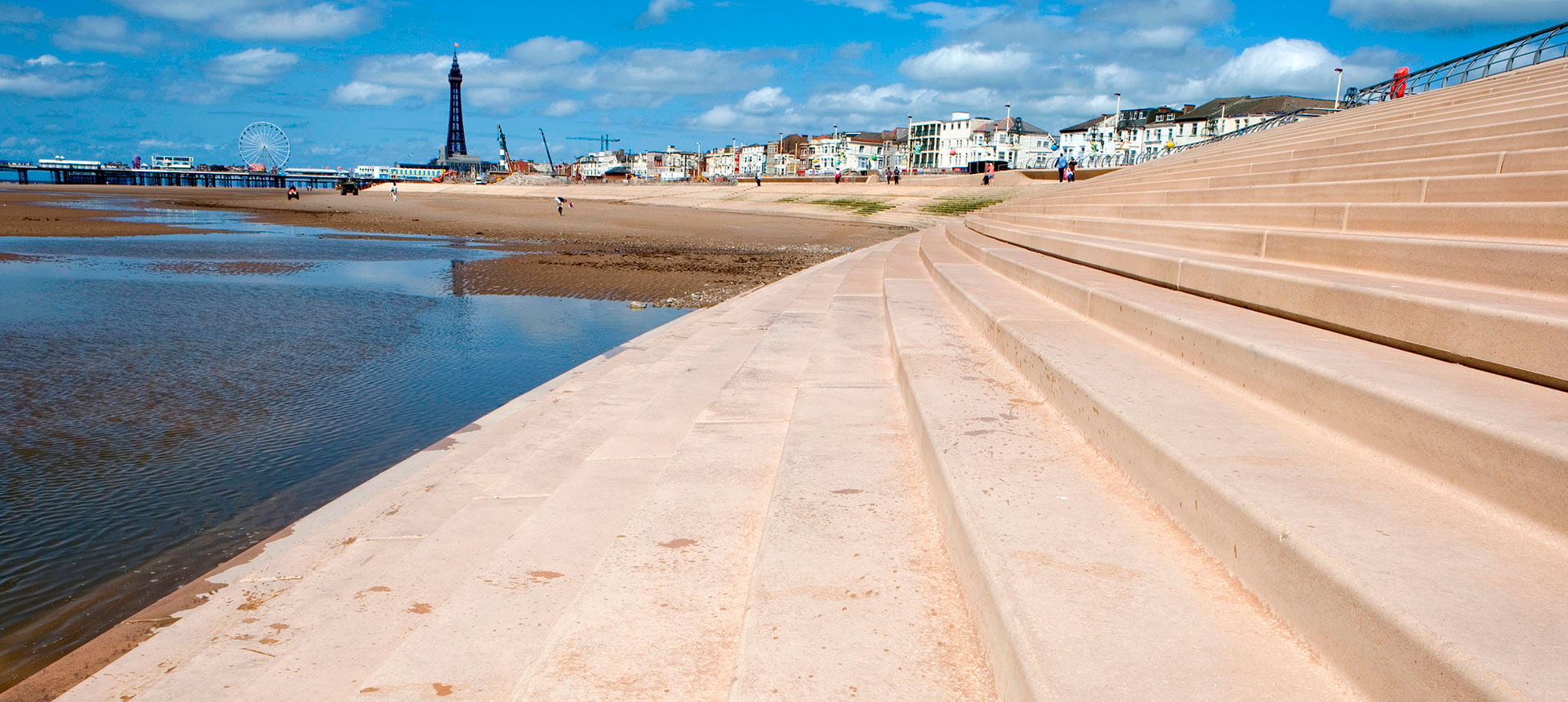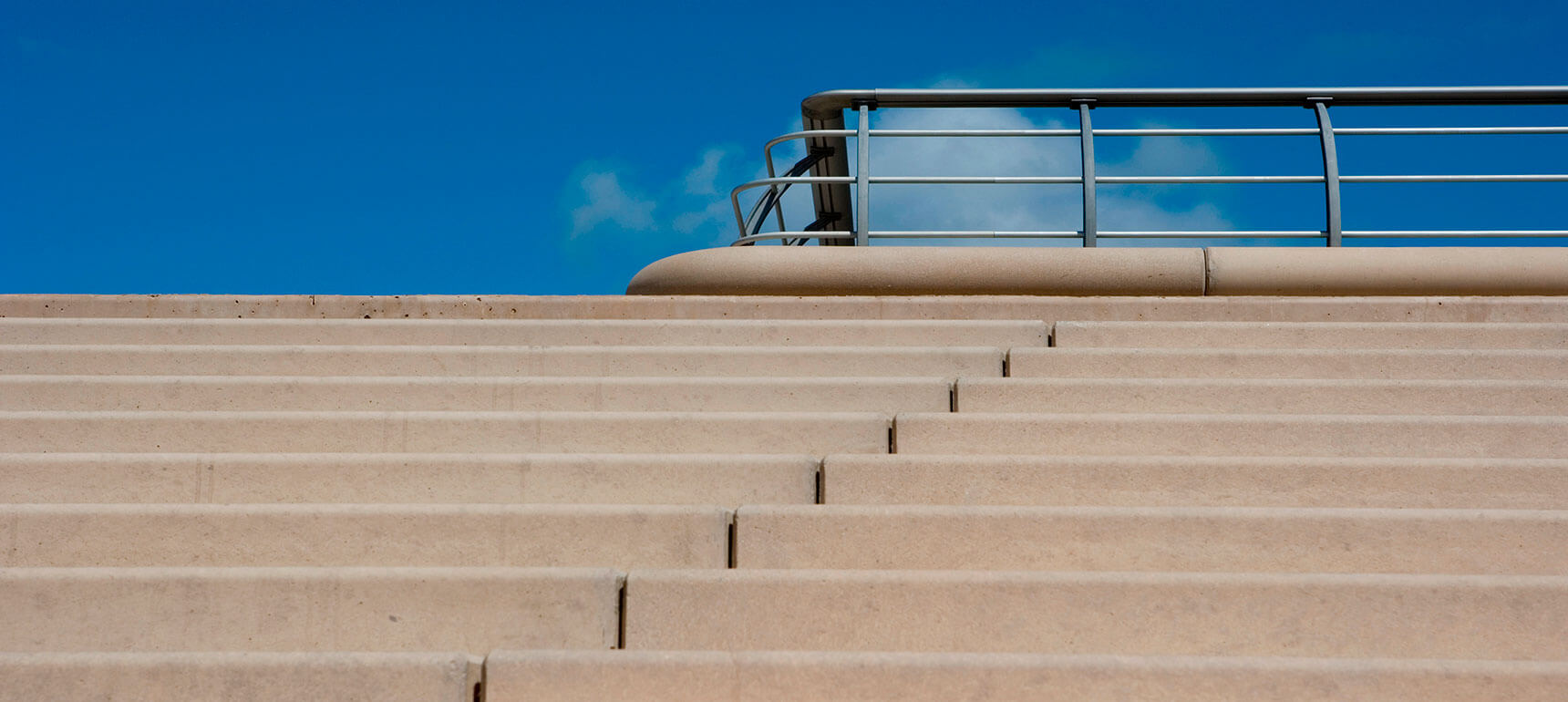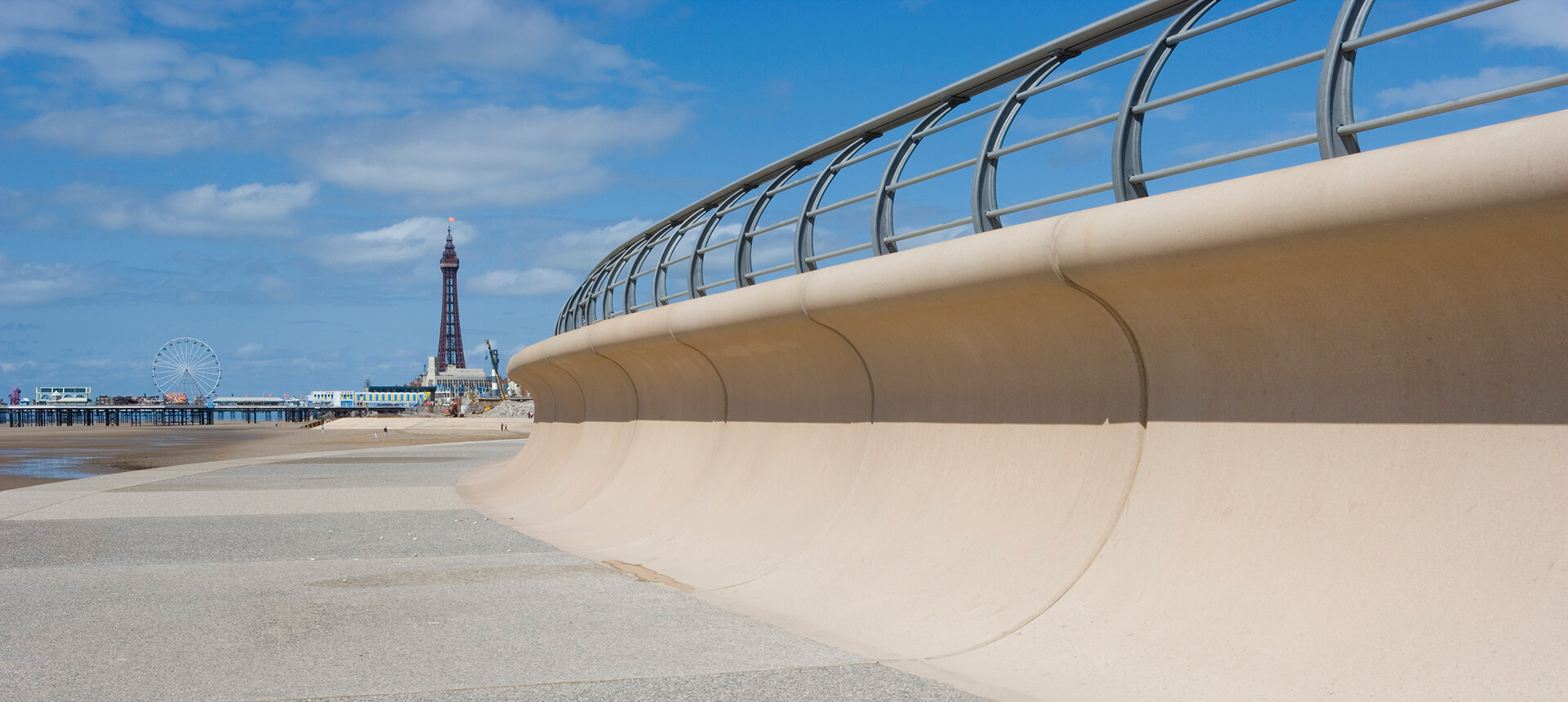Blackpool Sea Defences
Product:
evoBuild low carbon GGBS and
ColourCrete
Volume: 23,000m3 of precast units
Client: Blackpool Borough Council
Overview
Blackpool Borough Council spent £62 million on a four-year project, completed in 2009, to improve the promenade and sea defences.
Project description
This included 23,000 m³ of precast concrete units containing 50 per cent
evoBuild low carbon GGBS, previous known as Regen, for sea defence on Blackpool beach.
As well as the environmental and durability benefits of using evoBuild low carbon GGBS, the council wanted the concrete units to be buff in colour to match the sand and the lighter colour of evoBuild low carbon GGBS enhanced the pigment colour.
More about evoBuild low carbon GGBS
evoBuild low carbon GGBS is Ground Granulated Blast furnace Slag, commonly known as ‘GGBS’.
It is a cement substitute, manufactured from a by-product of the iron-making industry.
Using one tonne of evoBuild low carbon GGBS in concrete reduces the embodied CO2 by around 650kg, compared to using one tonne of Portland Cement. It also increases the concrete’s durability and is more sustainable than other cement substitutes such as Fly Ash.
In the UK, GGBS is usually supplied as a separate component for concrete and is added at the concrete mixer.
It can replace 70 per cent or more of the Portland cement. In British Standards, GGBS is referred to as an ‘addition’ and counts fully towards the cement content in concrete.
evoBuild low carbon GGBS conforms to BS EN 15167-1 “Ground Granulated Blast furnace Slag for use in concrete, mortar and grout” and is available throughout the UK, accompanied by a full technical and logistical support package.
Location
Blackpool (United Kingdom)
Blackpool Sea Defence.

Blackpool Sea Defence.

Blackpool Sea Defence.

Blackpool Sea Defence.

Blackpool Sea Defence.

Blackpool Sea Defence.